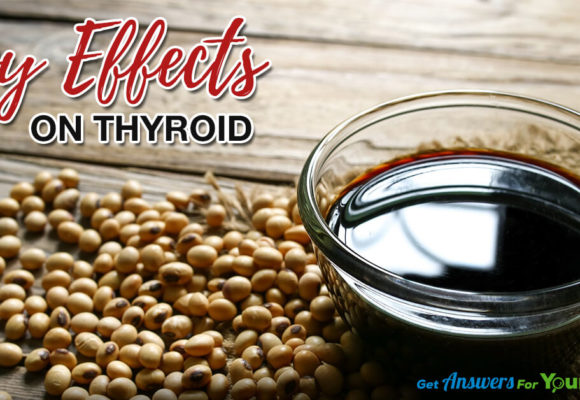1) Grab a FREE copy (Value $14.95) of one of my books Thyroid Symptom Overload
Just pay shipping $7.95 for any US orders. Or, if you want to pay full price plus shipping, order from Amazon :)
2) Take our Thyroid Quiz today and find out what "Thyroid Type" you have
This quiz will help you quickly discover where your symptoms are stemming from.
3) Join Our Thyroid Advocate Membership Site - Natural Thyroid Academy
FREE for a limited time. No credit card required.
4) Work with me and my team privately
Schedule your FREE 15 minute phone consultation and we can find out the best way to help you specifically.
The hypothalamus is a very important part of the brain, mostly because it is responsible for the regulation of the master gland, i.e. the pituitary gland. If something goes wrong with the hypothalamus, then everything goes haywire and many functions of the body including internal balance can get out of control. This can lead to many symptoms. Here are some clear and precise basics about the hypothalamus and the role it plays in natural endocrine function.
Understanding the Basics of the Hypothalamus
A small part in the center of the brain, the hypothalamus has many important functions. It is situated directly over the pituitary gland, it connects the nervous system to the endocrine system. One of the major roles of the hypothalamus is to regulate internal balance or homeostasis of the body. Some other things it helps in maintaining include:
- Emotions
- Body temperature
- Thirst
- Sleep cycles
- Appetite and weight
- Blood pressure
- Heart rat
- Motion of body fluids
- Sex drive
- Creation of digestive juices
- Childbirth
All of the above mentioned functions are kept in the right balance through proper function of the hypothalamus. When things are out of balance, the hypothalamus becomes active and tries to regulate hormones to their optimum function by stimulating the right endocrine glands to release certain hormones.
One example is the regulation of temperature. The body works best at 98.6 degrees F. If it gets too cold, the body starts shivering to create warmth and if it gets too hot, sweating begins in order to cool the body down.
How does the hypothalamus achieve all these bodily functions? Through the release of various hormones. Since the hypothalamus does not produce all hormones, it sends signals to the pituitary gland which then sends the right hormone to work its magic around the body. The hormones that the hypothalamus creates and secrets include:
- Thyrotropin: This hormone activates the thyroid gland which in turn makes sure that energy levels, metabolism and developmental growth is carried out accurately.
- Antidiuretic hormone: Is one that controls the amount of water absorbed by the kidneys into the blood streams.
- Gonadotropin: Is a hormone that works with pituitary gland in order to make sure sex glands are working adequately
- Corticotropin: Hormones that help in the regulation of immune response and metabolism with the help of pituitary gland and adrenal glands.
- Oxytocin: Helps in the release of breast milk among mothers. It also regulates sleep cycle and body temperature.
- Prolactin: The hormone which works alongside the pituitary gland in order to control the supply of milk for lactating mothers.
The hypothalamus is also responsible for growth hormones among children and adults, in order to ensure that proper growth is taking place. These are all the essential functions that the hypothalamus carries out. Imagine if it starts malfunctioning. The entire working of the body becomes disrupted and many symptoms can set in. All disorders that occur due to the improper working conditions of hypothalamus are known as hypothalamic diseases.
The problem is, it is very hard to predict whether or not there is something wrong with the hypothalamus, since it works in such close association with other endocrine glands. This is the reason why these disorders are referred to as hypothalamus-pituitary disorders. Also called hypothalamus dysfunction, it could include one or more than one conditions taking place at the same time.
What is Hypothalamic Dysfunction
The first question is what can make the hypothalamus start acting abnormally? Some other things that can give rise to hypothalamic diseases are:
- Infections
- Inflammations
- Genetic disorder that leads to excess presence of iron in body
- Bulimia or anorexia nervosa, both eating disorders
- Internal bleeding
- Head trauma
- Malnutrition
What can be done in order to handle such disorders? And what are the signs and symptoms of a hypothalamus disease and cause the hormone imbalance?
Signs and Symptoms
It is very difficult to say whether the problem is with the hypothalamus or the pituitary gland. In children, when there is growth concerns, too much or too little growth, it is a sign of hypothalamus disease. In adults, hormonal imbalance may occur. Here are some symptoms of the different problems experienced:
Tumors & Adrenal problems
- Headaches
- Visionary problems like blurred vision
- Loss of vision
- Weakness
- Dizziness
Thyroid issues
- Depression
- Increased sensitivity to cold
- Disrupted menstrual cycle
- Impotence
- Constipation
- Exhaustion
- Hair loss
- Foggy brain and confusion
- Weight gain without any apparent cause
Some other symptoms can include:
- Excessive thirst
- Uncontrolled urination
- Problems with body temperature
- Low sex drive
- Obesity
- Emotional issues
- Inability to smell
Diagnosis and Treatment of Hypothalamic Disease (HPA Axis)
Once you notice these problems going on with you, you need to get in touch with a doctor immediately. They will do a physical exam and take your medical history to rule out other diseases. Some blood or urine tests like cortisol levels, growth hormone levels, pituitary hormones level and estrogen levels will be checked to see what is the hormonal condition like.
Once it has been deduced what the underlying cause for the hypothalamic dysfunction, treatment options will be discussed. If there is some kind of hormonal deficiency, the patient is often given a medication by their doctor. If there is a tumor, it would be removed with either surgery or radiation.
For most people with hypothalamus dysfunction, the prognosis is bright. They are treated and life can go on normally. There are times though when vision problems, balance issues or thyroid problems can permanently affect the patient, but this is rare.
Studies show that with the right diet, you can make sure that your hypothalamus function stays normal. So long as you keep up with a healthy lifestyle, your chances of inflammation are low and gut health will also remain healthy. Make sure your diet is full of fresh and organic food items and your lifestyle is active so as to prevent any kind of weight gain. Contact Health Solutions Plus, 716-773-4707, if you would like to find which foods your body may be sensitive to.
If you do have the above symptoms, get in touch with your doctor and get treated soon.
References
- https://www.medicalnewstoday.com/articles/312628.php
- https://medlineplus.gov/ency/article/001202.htm
- http://www.nytimes.com/health/guides/disease/hypothalamic-dysfunction/overview.html








